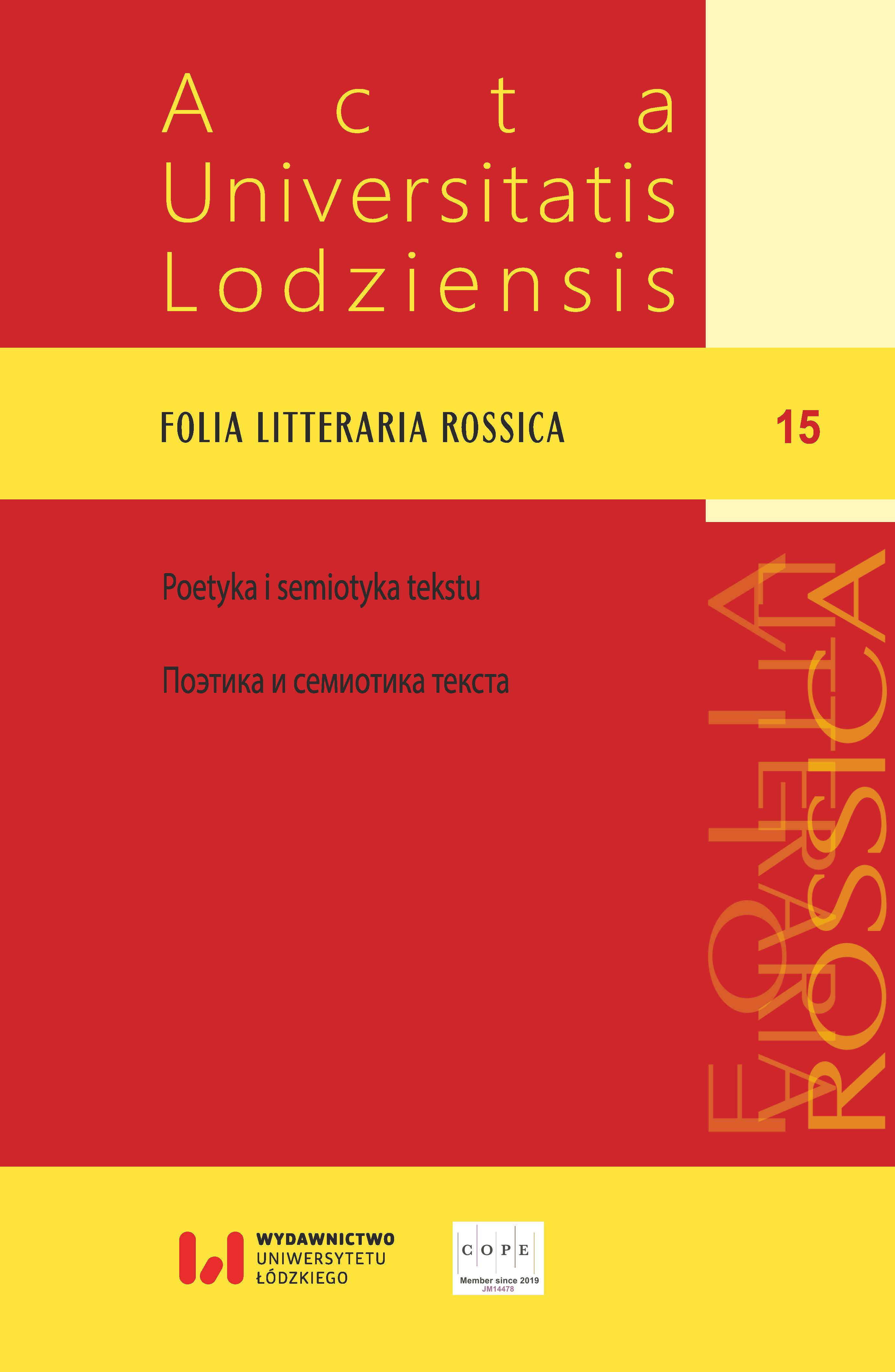Изобразительность и пластичность в поэзии Бориса Куприянова
Picturesqueness and Plasticity in the Poetry of Boris Kupriyanov
Author(s): Aleksandr MarkovSubject(s): Literary Texts, Studies of Literature
Published by: Wydawnictwo Uniwersytetu Łódzkiego
Keywords: Boris Kupriyanov; Leningrad underground; samizdat; novel in verse; lyrical genres; lyrical topoi; picturesqueness
Summary/Abstract: The little-studied poet of the Soviet second culture Boris Kupriyanov shows affinity with other authors of the religious-metaphysical tradition of the Leningrad underground, except for his striving for big form. His lyrical pieces are preparatory forms of the novel in verse, experiments in making a complex system of characters as explaining the statement. This allows him, while actualising the elegiac and epigrammatic elements of lyricism, to introduce the imagery of various arts, as was customary for poets of his circle. But his attitude towards art is not a synthesis but an analysis; he sees in the arts not the producing of capacious images of experiences, but different layers of experience so that each art for him does not only have its own expressiveness, but also the own timing of articulation of a lyrical emotion. A close reading of this author’s two poems, taking into account the sources of speech figures and quotations available to him, allowed us to establish common patterns in the superimposition of images of painting, graphics, and architecture in the perspective of the invention of the novelistic-type hero. The common theme of poems from different years turns out to be a polemic with abstract theses of philosophy, from Neo-Platonism to Existentialism, as not taking into account the specific dynamics of each art. The parallel development of the aesthetic and ideological programme of Boris Kupriyanov is reconstructed; the perception of Neoplatonism through the works of Alexei Losev and of Christian mysticism in communication with the circle of Goricheva and Okhapkin required treating lyrics as a moment of self-determination, fixing the current state of mystical detachment. At the same time, the lyrics turned out to be a configuration of pictorial and plastic ways of expressing mystical symbols, insufficient for a detailed lyrical biography, but necessary for fixing the factuality of mystical experience.
Journal: Acta Universitatis Lodziensis. Folia Litteraria Rossica
- Issue Year: 2022
- Issue No: 15
- Page Range: 153-165
- Page Count: 13
- Language: Russian

